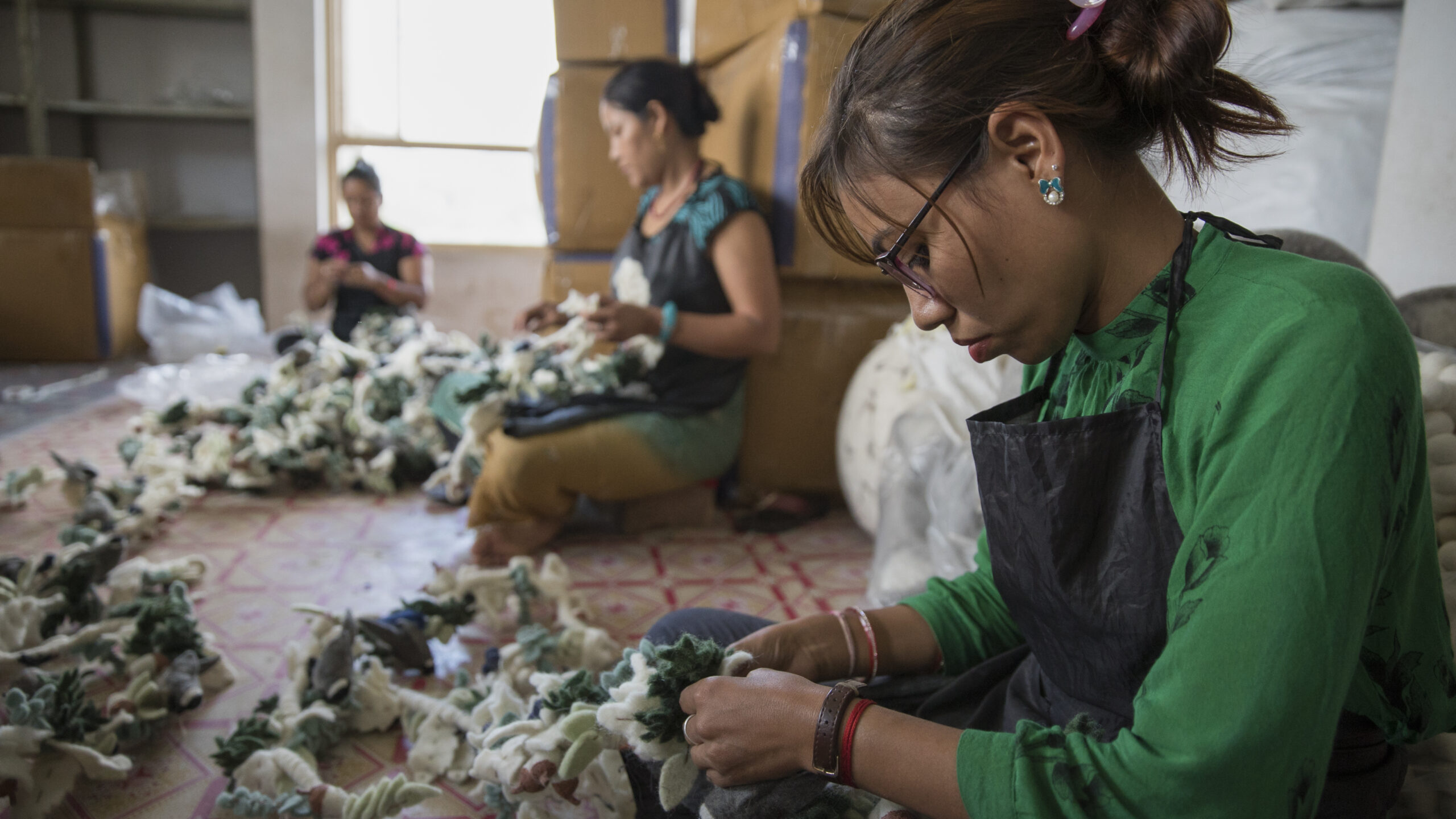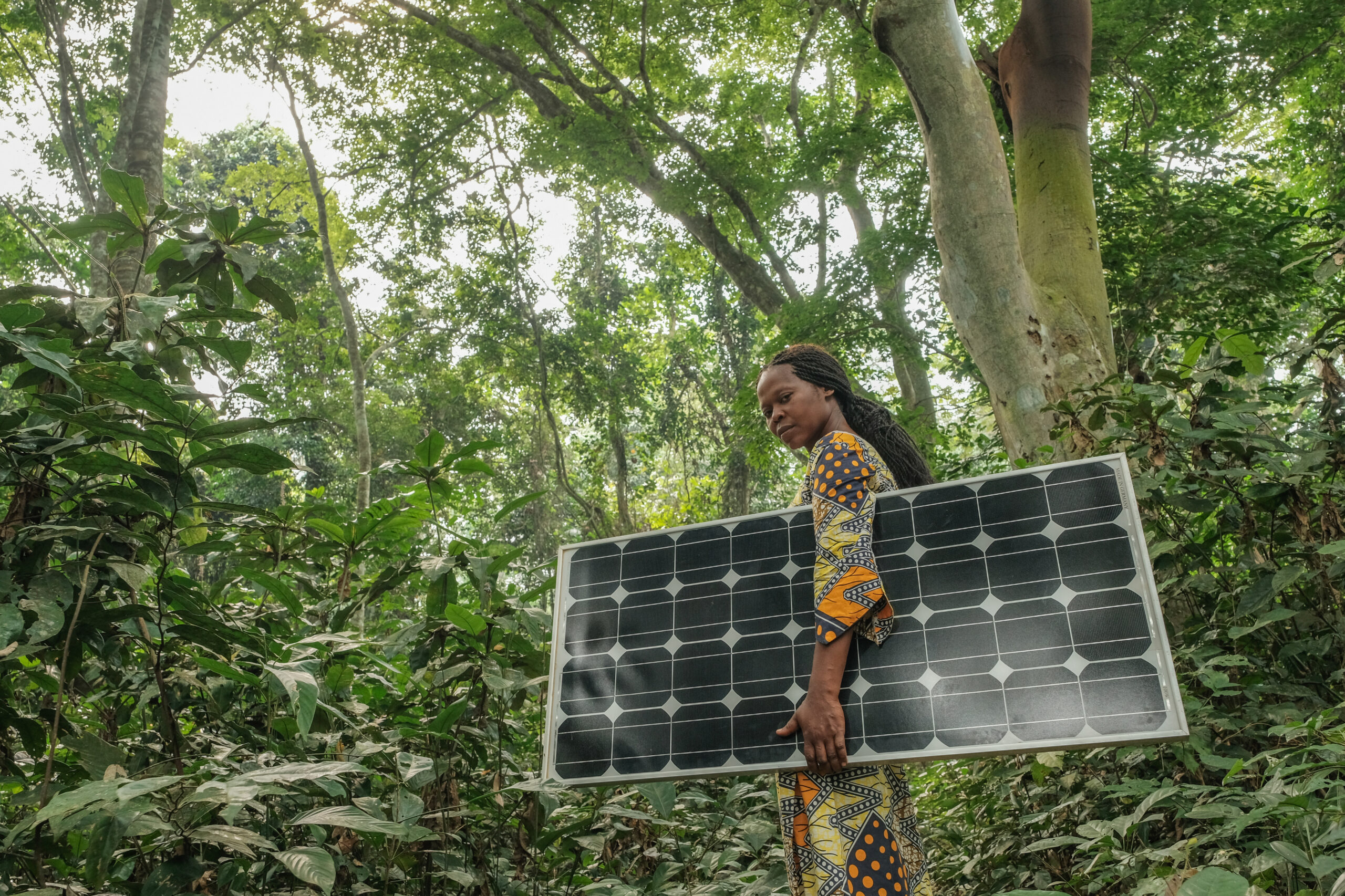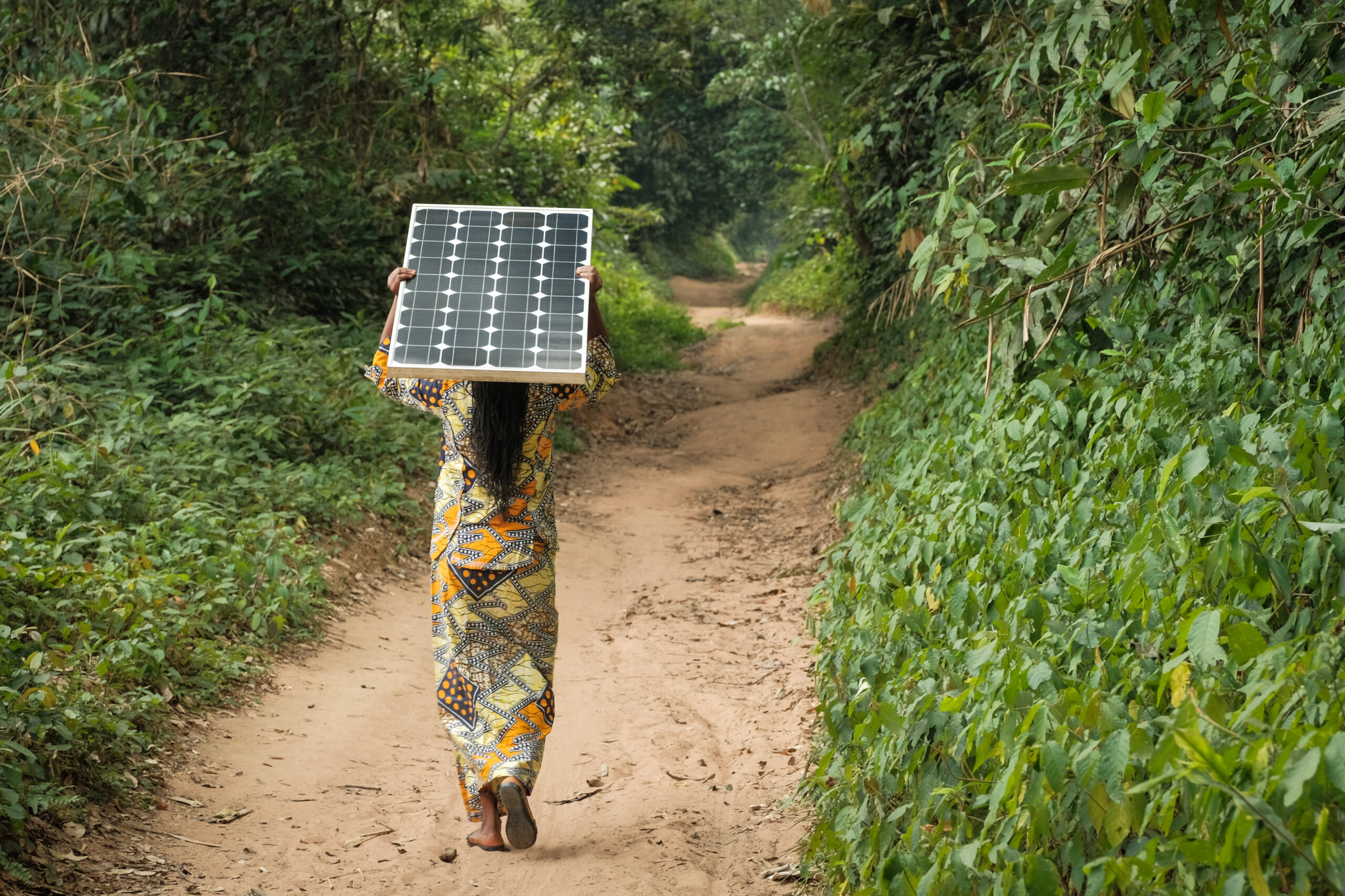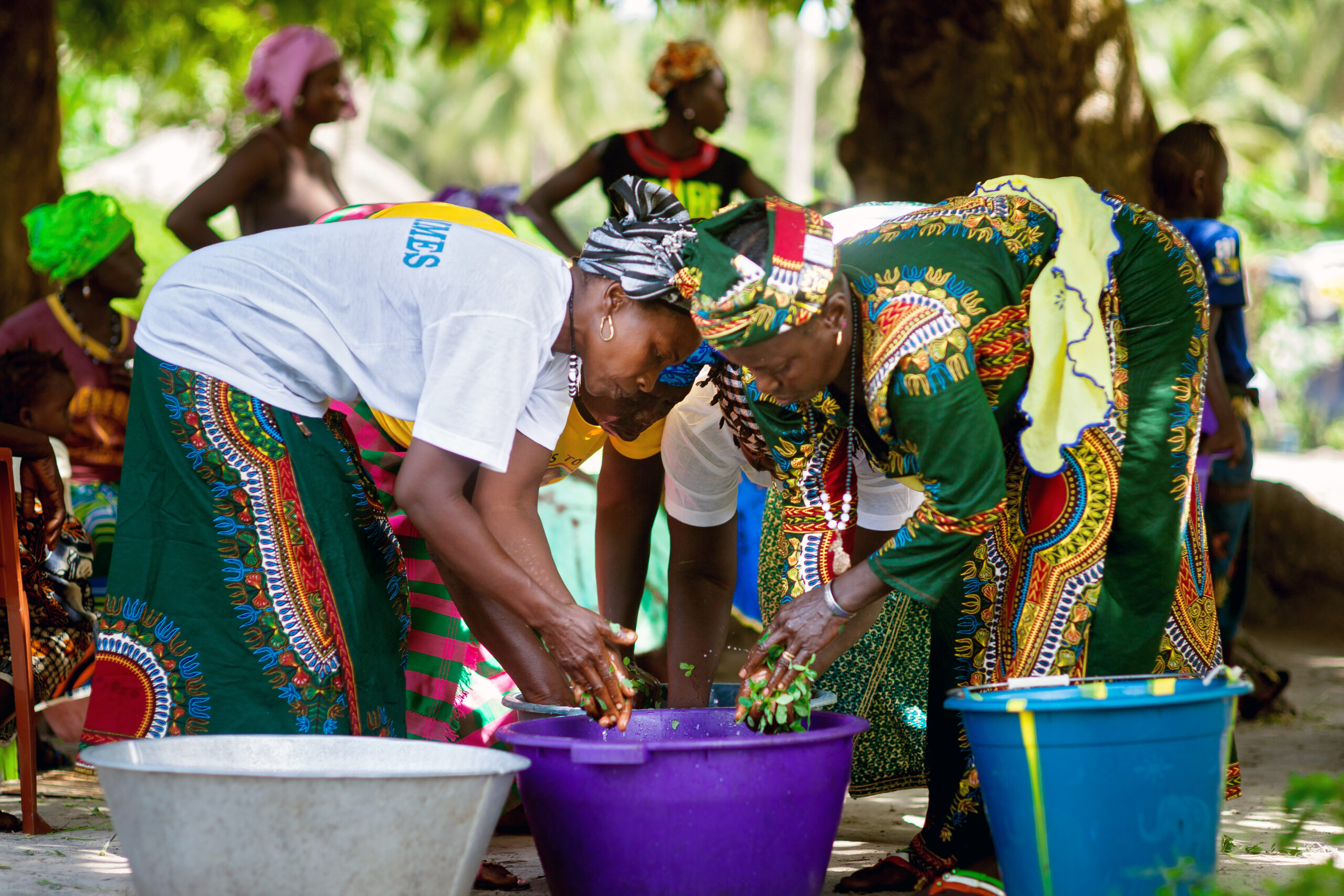'Women Stitch Handicrafts' by World Bank Photo Collection via Flickr (CC BY-NC-ND 2.0) https://flic.kr/p/QuyzXN

Clean Energy Brief: Global Clean Energy Policy and the Inclusion of Women and Youth
31 October 2024
This is a Clean Energy Brief.
The Summary
This Clean Energy Brief assesses the available evidence, opportunities, and challenges for the inclusion of women and youth, through micro-, small- and medium-sized enterprises (MSMEs), for global clean energy policy innovations. In this context, policy innovations are understood to be the actions and instruments which both support low-carbon energy (renewable and non-renewable) transitions, and disincentivise the use of fossil fuels. This is particularly significant where, to date, low-carbon energies have been additions to the global energy mix, rather than replacements for fossil fuels (Bell et al. 2020).
The brief was prepared for the Clean Energy for Development: A Call to Action (CEDCA) initiative’s February 2024 learning workshop in Nairobi, funded by the International Development Research Centre (IDRC) and hosted by the Institute of Development Studies (IDS) in their knowledge translation role. The initiative generates evidence to inform public policy reform and innovation to support clean energy transitions where women and youth play a key role. This brief is not a systematic review of the available literature; it is instead intended to serve as a discussion point for the researchers working on clean energy for development projects.
To read the full Clean Energy Brief, please click here.
Cite this publication
Cheeseman, K. (2024) Global Clean Energy Policy and the Inclusion of Women and Youth, CEDCA Clean Energy Brief 1, Brighton: Institute of Development Studies DOI: 10.19088/IDS.2024.039
Copylearning
Theme
Inclusion, Gender
Credit: Formation, Recherche, et Environnement dans la Tshopo (FORETS), Democratic Republic of Congo by Axel Fassio/CIFOR via Flickr, CC BY-NC-ND 2.0 https://flic.kr/p/M4bV7G

T20 Side Event: Powering change: Women, youth, and the clean energy revolution
Thursday 12 June 2025
Watch again In this virtual panel event, we will bring together experts from various regions to address a critical challenge of our time: ensuring that women and youth are not left behind in the global transition to clean energy. Gender equity needs to be at the centre of clean energy policies or women will become […]
Woman carrying a solar pannel near Yangambi, DRC. Axel Fassio/CIFOR via Flickr. CC BY-NC-ND 2.0 https://flic.kr/p/286BAUy

Powering Change: The Critical Role of Women and Youth in Sustainable Energy Transformation
9 April 2025
How do we build economic systems that recognise and work within the biophysical limits of our finite planet while simultaneously reducing poverty and inequality? This has become a defining question of our time, and the global transition to clean energy is increasingly considered an important vehicle via which we might address this ‘trilemma.’ Concerns about […]
Guinea - Rural Women's Cooperative Generates Income and Improves Community Life by UN Women via Flickr. CC BY-NC-ND 2.0 https://flic.kr/p/Pqdj5s

Experts call on G20 leaders not to leave women and children behind in the clean energy transition
17 June 2025
As global challenges in clean energy adoption intensify, a compelling conversation unfolded during a virtual panel event, “Powering Change: Women, Youth, and the Clean Energy Revolution,” bringing to the forefront the urgent need to prioritise gender and youth inclusion in the clean energy transition. This event was hosted as an official side event for the […]

